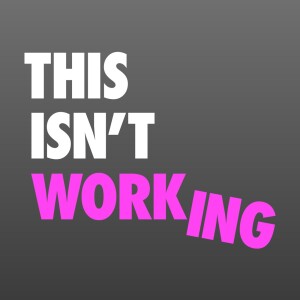
Wednesday Mar 05, 2025
'Trans Inclusion' At Work: Time For A New Approach? (Ft. Stella O'Malley)
In trying to make our workplaces ‘inclusive’ to people who identify as trans and non-binary, have employers excluded and alienated too many others? In some cases, it looks like we are actually causing distress to our colleagues, without even realising.
If it’s bad for our teams, and it’s bad for business, is it time to look at 'trans inclusion' again?
Future episodes will cover the legal aspect of this topic (including why many lawyers are warning employers not to follow the CIPD’s ‘Trans and non-binary inclusion’ guides – especially the 2023 version. Reminder: religious and gender critical beliefs are protected under the Equality Act 2010).
But first, let’s step back and look at the people side of things.
What was originally presented to employers as an extension of the gay rights movement has turned out to be something far more complex, sensitive, and political. You might even ask whether this discussion belongs with HR at all.
What is ‘trans’ really all about? A range of perspectives is available – and we won’t all agree.
What we are more likely to agree about is the presence of a lot of pain – and not just that of our colleagues who identify as trans or non-binary, whose stories we have heard much about in recent years.
It is time to hear the untold stories of the people closest to them – who are also working alongside us, whether we realise it or not?
While themes of joy and authenticity surround trans-led discussions, not every family has such a happy tale to tell.
It can't be right that employers are cherry-picking whose distress is seen, and whose is ignored.
In this episode, Stella O’Malley, director of Genspect, explains who in your workforce is currently suffering in silence.
Perhaps they fear their colleagues’ reactions - or perhaps they feel this is simply too painful to discuss at work, where they come to think about other things.
Are these groups likely to be performing at their best in your organisation? Consider:
* Parents of distressed children or teens who identify as trans or non-binary, who don’t believe medical transition is the right path for their child
* Estranged parents of older children who have lost touch after saying they identify as trans
* 'Trans widows' and children of transitioners - the exes and kids of biological males who transition later in life don’t always want to celebrate this change
* 'Detransitioners' and 'desisters' - who identify as trans for a while, but later decide it is not the right choice for them
Do you know if these groups are in your workforce? Have you insisted they attend gender diversity training where contested ideas were presented as fact? How will they feel about your plans for Pride this summer, if the activities include uncritical affirmation of a medicalised approach to trans? And is your organisation appealing to talent from these groups, when seeking a new role?
This is a big opportunity for HR professionals to show we are able to recalibrate, when new information becomes available.
Is it time to put our heads together, and find better ways to make sure everyone feels welcome and able to do their best work within our organisations?
What would a genuinely inclusive approach look like - and how should employers move forward from here?
Enjoy the episode...
Genspect https://genspect.org/
Children of Transitioners http://childrenoftransitioners.org/
18 months - A Memoir Of A Marriage Lost To Gender Identity (by Shannon Thrace) https://www.amazon.co.uk/18-Months-Memoir-Marriage-Identity/dp/B0BHTN37H6
Men trapped in men's bodies (by Anne Lawrence) https://link.springer.com/book/10.1007/978-1-4614-5182-2
Interview with Anne Lawrence https://www.youtube.com/watch?v=9_1wXsYdzMI
No comments yet. Be the first to say something!